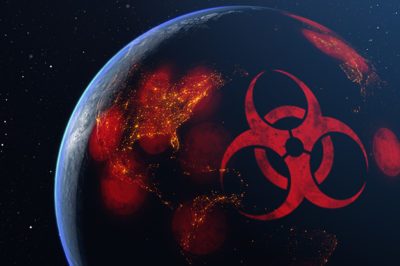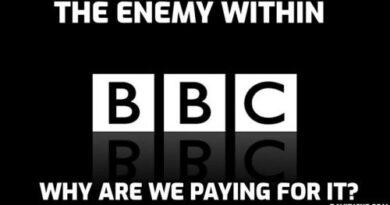Bribery and Corruption in the Covid-19 Era

While the world is trying to limit the destruction caused by the ongoing COVID-19 pandemic, we are only starting to understand its long-term effects on governments, economies, companies and individuals. The global crisis has exacerbated existing flaws at all levels, including vulnerabilities to corruption and bribery.
Corruption and bribery are not new problems, but crises such as today’s COVID-19 pandemic tend to increase their risk. Governments are occupied with urgent matters and take shortcuts to get what they need. Companies or individuals may be tempted to resort to bribes to meet objectives and there is increased competition and pressure to secure certain supplies and services. Plus, changes in supply chains and regulatory environments (borders closed, travel restrictions) create new avenues for corruption and less oversight.
Using Existing Anti-Bribery Measures
Thanks to The International Organization for Standardization, an international, independent non-governmental organization, there is a means for combating this cross-border problem. The ISO 37001 Anti-Bribery Management Systems is the universal standard that helps organizations, private or public, large or small, prevent and address bribery. ISO 37001 was developed in 2016 with input from international organizations such as Transparency International, the OECD and the International Chamber of Commerce, as well as country participants and international regulators. To become certified, organizations must implement an anti-bribery management system that meets the standard’s requirements, designate an individual to oversee compliance with the policy, establish financial controls and adopt monitoring and reporting processes.
Companies and governments also implementing their own anti-bribery policies or become members of industry-level self-regulating organizations (SROs). While both have benefits, they are also inherently flawed. As Amit Narang argued in The Hill, “It is simply unacceptable for our government to allow corporations to decide whether products and services are safe for the public when those companies have an overwhelming incentive to make products and services merely appear safe, so they can reach the market. This fundamental conflict of interest is at the heart of why industry self-regulation doesn’t work…” While he was referring to health and safety regulations, the argument is still pertinent for bribery. Self-regulators are funded and overseen by companies they are meant to be regulating. When certain business practices are lucrative for an industry, it is doubtful that SROs or companies will go out of their way to abolish or create punitive oversight for such practices. This is even more true during a global crisis when companies are struggling, and competition becomes even more cutthroat.
Fighting Government Corruption
Perhaps nowhere is bribery more widespread than at the government level – we have seen too many examples of this throughout the pandemic. The World Bank argues that the, “COVID-19 pandemic has resulted in large scale emergency spending by governments, sometimes without adhering to the regular checks and balances… The strains placed on the public sector in responding to the current situation present enormous opportunities for corruption to flourish.” In July, officials in Brazil were accused of pocketing almost $72.2 million in bribes when awarding state contracts for medical supplies. Most of the ventilators were not delivered, resulting in avoidable deaths.
ISO 37001 provides the means for curtailing such corruption. Governments can require ISO 37001 compliance not only for vendors bidding on public contracts, but also for themselves. When former Malaysian Prime Minister Najib Razak was forced out of office in 2018 after being convicted of seven corruption charges involving hundreds of millions of dollars, Mahathir Mohamad, Razak’s successor, announced that all ministries, departments and government-linked companies would pursue ISO 37001 certification. “This effort will make Malaysia the first country in the world to apply the ISO 37001 certification in the public sector,” he noted. Malaysia has since shown improvement in international corruption rankings. Given the potential risks of the current crisis, other countries would be wise to follow.
Governments also need a high level of oversight when it comes to their central banks and currencies. In 2018, it was revealed that Securency and Note Printing Australia (NPA), then subsidiaries of the Reserve Bank of Australia, were ordered to pay $21.6 million relating to corruption charges. Securency and NPA pleaded guilty to bribing foreign officials in Asia to win banknote printing contracts in 2012.
A group of banknote producers formed the Banknote Ethics Initiative (BnEI) in 2013 to write their own set of ethical practices. But BnEI faces the same issues as self-regulating organizations in other industries: member companies will ultimately want to protect their own interests. Antti Heinonen, Chairman of BnEI, claims “The key difference which separates BnEI from other similar initiatives is that – rather than self-assessment – companies are externally audited and accredited.” But with only two organizations doing the auditing, their true independence has to be questioned.
Given various scandals and with economies fragile from the pandemic, central banks need objective reassurances that companies printing their money follow strict anti-bribery guidelines. They need more than industry self-regulation and promises. In “How Companies Can Take a Stand Against Bribery,” Ravi Venkatesan and Leslie Benton argue, “Because the standard is a global tool, developed by a global expert stakeholder group that was not tied to the law or guidance of any one country, it may be more readily accepted by some as an anti-bribery common language.” Plus, central banks can trust that ISO 37001 certified manufacturers are monitored and evaluated by independent third-party auditors.
Every Business Sector is Impacted by Bribery
Corruption is certainly not limited to governments, currencies or any specific industry. Some companies have become ISO 37001 certified because clients demand it. Such was the case for U.K.-based Mott MacDonald, a global engineering, management and development consulting firm. Lorna Raymond, who led the company’s certification process says, “In our tenders, the question was being asked, ‘Do you have certification to ISO 37001?’”
Others are required by prosecutors to pursue certification as part of settlement deals in corruption cases. In 2016, Brazilian construction giant, Grupo Odebrecht, signed a deal with U.S. and Swiss officials in which they agreed to pay $2.6 billion in fines for paying bribes to win contracts. Additionally, authorities demanded that the company seek ISO 37001 certification. Prosecutors in Singapore and Denmark have also made ISO 37001 certification a condition of corruption settlements. Such legal conditions signal a recognition of the standard’s merit and trustworthiness.
And some companies proactively seek certification to create a corporate culture of compliance. Microsoft, the first large American company to become ISO 37001 certified, has been very vocal in the need for a universal framework. David Howard, Corporate Vice President, General Counsel, Litigation, Competition Law, & Compliance at Microsoft states, “We think a consistent approach to anti-corruption programs is a good thing. That, along with an objective and independent certification process, should give governments around the world confidence that the companies which achieve certification are doing everything they reasonably can to reduce corruption. We encourage other major companies to adopt ISO 37001…”
In the COVID-19 era, when governments are cutting corners and rushing orders and companies are facing cutbacks and pressure to win contracts, adopting universal anti-bribery norms such as ISO 37001 has become all the more important.
*
Note to readers: please click the share buttons above or below. Forward this article to your email lists. Crosspost on your blog site, internet forums. etc.
*** This article has been archived for your research. The original version from Global Research can be found here ***


